Eleuthero Root
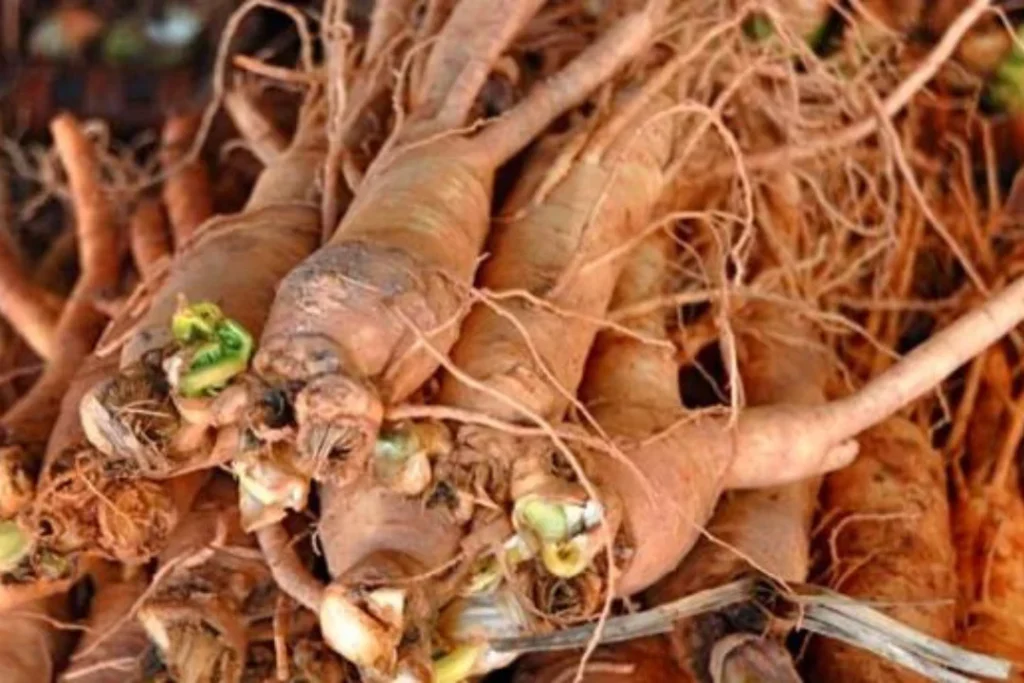
Eleuthero Root, also known as Siberian Ginseng (Eleutherococcus senticosus), is a renowned adaptogenic herb that has been used for centuries in traditional medicine, particularly in Russia and China. Despite being called Siberian Ginseng, it is not related to true ginseng but shares similar energizing and immune-boosting properties. Eleuthero is prized for its ability to help the body adapt to stress, increase energy, and enhance overall well-being. The root is commonly used in herbal supplements and teas to promote physical and mental resilience.
1. Size:
- Eleuthero plants can grow up to 10 feet (3 meters) tall, with woody stems and slender, flexible roots that can extend deep into the soil.
2. Color:
- The roots are typically light brown to tan on the outside, with a white to yellowish interior. When dried, they retain their pale color and become slightly brittle.
3. Texture:
- Eleuthero roots are tough and fibrous when fresh, with a woody texture that becomes more brittle as they dry. The dried root is often ground into a powder for use in herbal preparations.
4. Fragrance:
- Eleuthero Root has a subtle, earthy scent with a slightly sweet undertone. The fragrance is not as strong as some other herbs but is noticeable when the root is crushed or powdered.
5. Uses:
- Eleuthero Root is widely used as an adaptogen, helping the body resist the effects of stress, improve endurance, and enhance mental clarity.
- The root is believed to strengthen the immune system, making it a popular choice during cold and flu season.
- Eleuthero is commonly used to combat fatigue and increase physical energy and stamina, making it a favorite among athletes and those with demanding lifestyles.
- It is also used to support cognitive function, including memory, focus, and mental performance, particularly during times of stress.
6. Habitat:
- Eleuthero is native to the forests of Eastern Russia, China, Japan, and Korea. It thrives in well-drained, fertile soils with partial shade and is often found in mixed woodlands and mountainous regions.
7. Cultural and Spiritual Significance:
- In Traditional Chinese Medicine (TCM), Eleuthero Root has been used for centuries to balance the body’s energy, strengthen the immune system, and enhance vitality. It is considered a tonic herb that supports overall health and longevity.
- The hardy nature of the Eleuthero plant, capable of thriving in harsh conditions, makes it a symbol of resilience and adaptability in various cultures.
Spiritual Properties
- Energy and Protection: Eleuthero Root is believed to offer spiritual protection and enhance personal energy, helping individuals stay grounded and focused during challenging times.
- Strength and Endurance: The root is also associated with spiritual strength and endurance, making it a popular choice for rituals or practices aimed at overcoming obstacles and building resilience.
Medicinal Properties
- Stress Relief: Eleuthero Root is renowned for its adaptogenic properties, helping to regulate the body’s response to stress and reduce the negative effects of chronic stress.
- Immune System Support: The root is believed to boost the immune system, helping to ward off infections and improve overall immune function.
- Anti-Fatigue: Eleuthero is commonly used to combat fatigue, improve physical endurance, and enhance mental performance, particularly in situations that require sustained effort.
- Cognitive Health: Eleuthero Root supports cognitive function, including memory and focus, making it beneficial for students, professionals, and anyone facing mental challenges.
Allergic Reactions
Eleuthero Root is generally considered safe for most people, but as with any herb, there is a possibility of allergic reactions.
- Skin Irritation: Some individuals may experience mild skin irritation, such as itching or redness, when handling Eleuthero Root. This is more likely in those with sensitive skin or existing allergies to similar plants.
- Respiratory Sensitivity: In rare cases, inhaling the powdered root may cause respiratory discomfort, particularly in individuals with asthma or other respiratory conditions.
- Interaction with Medications: Eleuthero Root may interact with certain medications, including blood pressure medications, anticoagulants, and stimulants. It’s important to consult with a healthcare provider before using Eleuthero if you are taking any of these medications.
- Increased Heart Rate: In some individuals, Eleuthero may cause an increase in heart rate or palpitations, especially when taken in large doses or combined with other stimulants.
- Insomnia: Due to its energizing effects, Eleuthero Root may cause insomnia or disrupt sleep patterns if taken too close to bedtime. It’s recommended to take the herb earlier in the day to avoid this side effect.
- Gastrointestinal Discomfort: Some people may experience mild gastrointestinal discomfort, such as nausea or upset stomach, when first starting to use Eleuthero Root. Starting with a small dose and gradually increasing it may help minimize these effects.

Ivy
Ivy Ivy (Hedera helix), also known as English Ivy, is a common evergreen climbing plant known for its distinctive lobed leaves and ability to cover
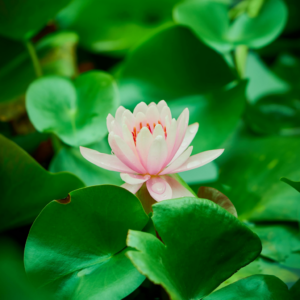
Spiritual Renewal Bath
Spiritual Renewal Bath A rejuvenating bath to refresh your energy and revitalize your spirit, this blend is perfect for times when you feel spiritually stagnant
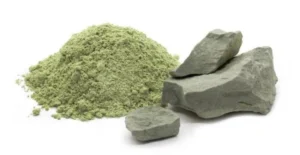
French Green Clay
French Green Clay The overall appearance of hibiscus flowers is bold and exotic, making them a popular choice for gardens, decorations, and floral arrangements. Their

Echinacea Purpurea Leaf
Echinacea Purpurea Leaf Echinacea Purpurea Leaf is a well-known herb valued for its immune-boosting properties and use in traditional medicine. It is commonly used to
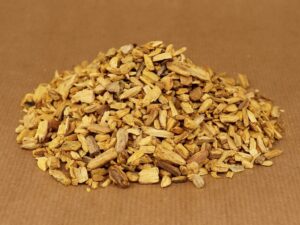
Palo Santo Chips
Palo Santo Chips Palo Santo, also known as "Holy Wood," is a sacred wood revered for its aromatic properties and spiritual significance. It is commonly
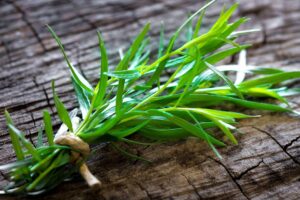
Tarragon
Tarragon Safflower (Carthamus tinctorius) is a highly branched, herbaceous plant known for its vibrant yellow, orange, or red flowers. It has been cultivated for centuries